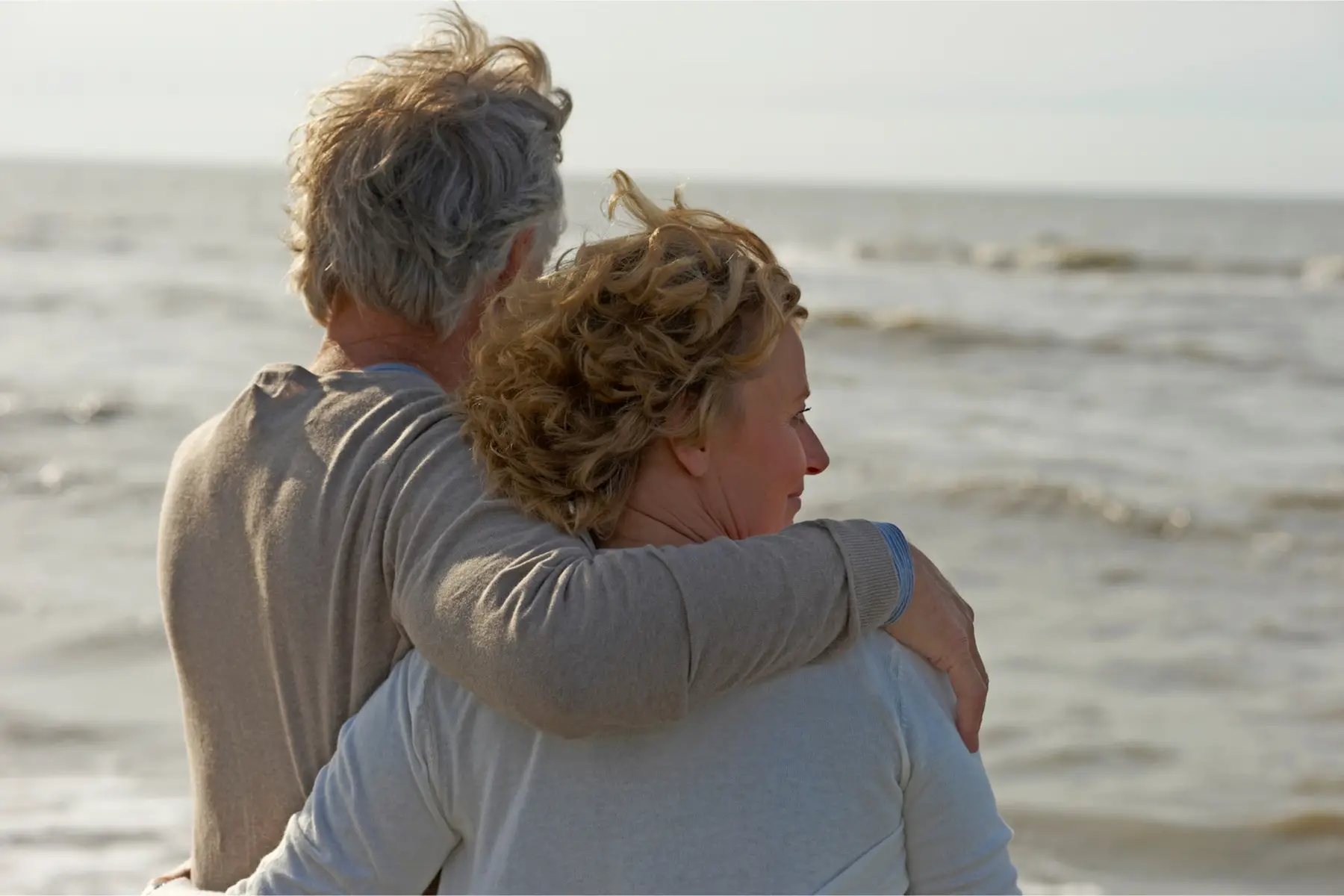When thinking about moving to the Netherlands, Amsterdam is often the first city that comes to mind. While the capital is indeed one of the best expat cities in the country, there are many other great places worth considering. As a small country with excellent public transport connections and road networks, it’s common for residents to live in one city and work in another.
Before deciding where to live in the Netherlands, it’s helpful to consider your lifestyle and factors that matter most to you, such as the cost of living, availability of relevant job opportunities and access to amenities such as schools.
Let’s dive in:
- The best cities in the Netherlands
- Where to live in the Netherlands
- Which places in the Netherlands are most family-friendly?
- Where are the best cities to retire in the Netherlands?
- Where to live in the Netherlands if you are single
- Which cities are the most affordable on a budget?
- Which cities offer the best job opportunities?
- Which cities in the Netherlands are best for business?
- Property websites
- Places to avoid in the Netherlands
- Useful resources
Spotahome
Looking for somewhere to rent in the Netherlands? Spotahome takes the hassle out of househunting by doing the hard work for you. Their online platform lets you find, view, and book rental properties all from the comfort of your own home. Take the stress out of househunting in the Netherlands with Spotahome.
The best cities in the Netherlands
Amsterdam
With its picturesque canal houses, vibrant atmosphere, and international community, it’s easy to understand why so many people choose to move to Amsterdam. Expats from over 180 nationalities live in the capital, making it a truly multicultural city. There’s always something to do in Amsterdam, given its many cultural events and world-class museums, such as the Rijksmuseum and the Van Gogh Museum.
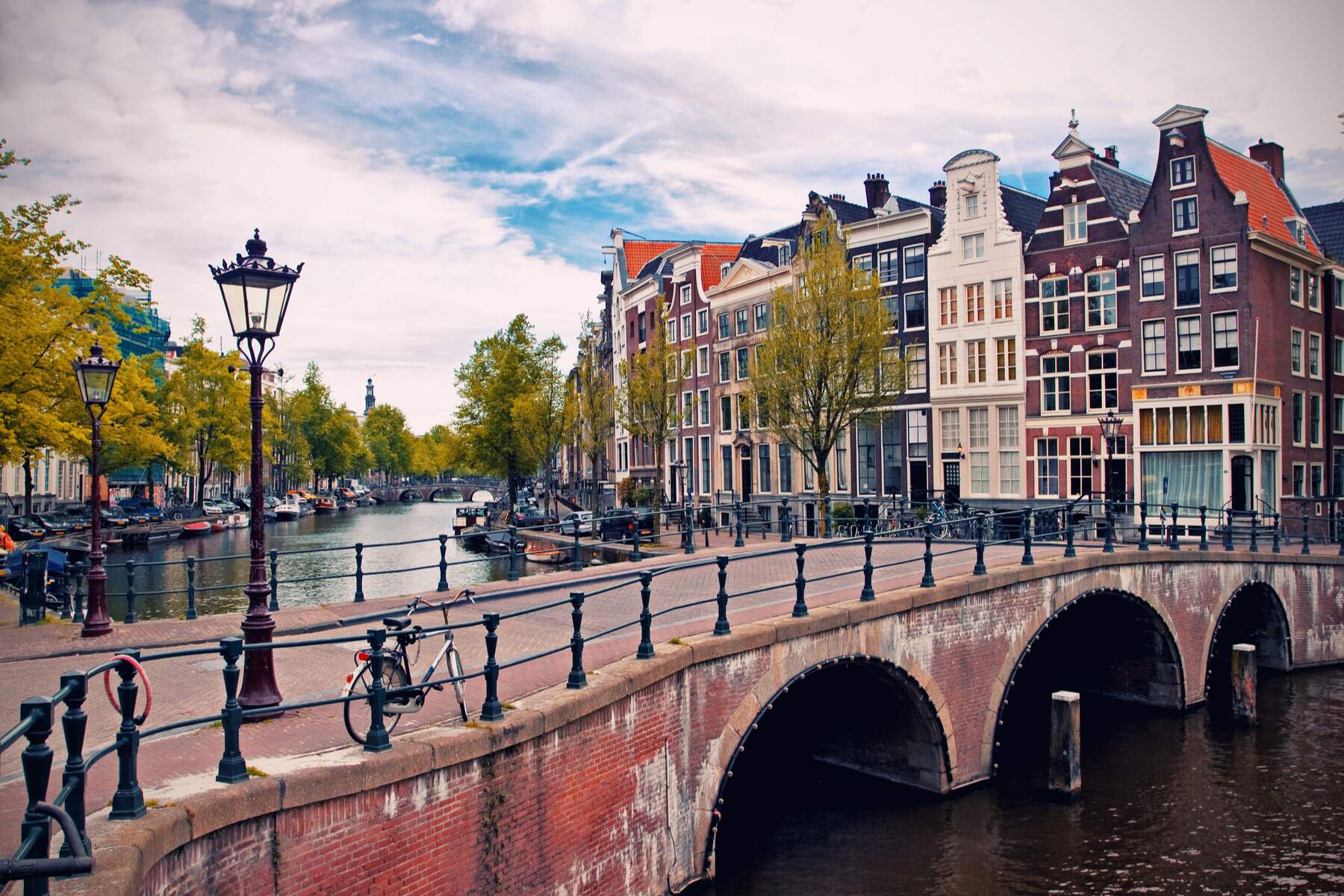
Amsterdam is the largest city in the Netherlands by the number of inhabitants, home to 873,338 people as of 2021. Despite its large population, it’s not difficult to escape the crowds and find more peaceful areas to live in. There are an impressive 30 parks in the city, and you’re never too far from the water, whether it’s canals, lakes, or even beaches you’re looking for.
There are seven districts in Amsterdam, each with its own distinctive qualities. If you enjoy the convenience of living in the center, Centrum is a good bet, as are some parts of West, Oost, and Zuid.
However, you can expect to pay high prices and face stiff competition for housing in these areas. In fact, Amsterdam was the most expensive city in Europe for renting in 2022. If you’re looking to budget your finances in Amsterdam or considering a mortgage, check out the ING products designed specifically for expats.
Areas slightly further away from the city center, such as Nieuwe-West, Zuid-Oost, and Noord, sometimes have more affordable housing.
Rotterdam
Rotterdam is the second-largest city in the Netherlands after Amsterdam. Unlike most Dutch cities, Rotterdam is known for its bold modern landscapes that were built after most of the city was destroyed during the Second World War.

Rotterdam is a lively, multicultural metropolis with countless cultural attractions and activities. Many of its well-known sights are hallmarks of the city’s unique urban architecture. These include the Cube Houses (Kijk-Kubus), the Erasmus bridge (Erasmusbrug), and the Market Hall (Markthal). Considering the global significance of Rotterdam’s maritime industry, it’s also worth taking a boat tour of the Europoort harbor, Europe’s largest port.
Rent in Rotterdam is ranked the fourth-most expensive in the Netherlands, making it cheaper than Amsterdam, Utrecht, and The Hague. Many expats in Rotterdam live in neighborhoods close to the city center (Centrum), such as Kralingen, Rotterdam Noord, and Kop van Zuid. Quieter neighborhoods slightly further away from the center include the leafy Hillegersberg and the up-and-coming Prinsenland.
The Hague
The Hague (Den Haag) is a city close to the seaside, offering a unique blend of modern cityscapes and access to beautiful nature. It’s home to the seat of the Dutch government, the royal family, and the United Nations’ International Court of Justice. Many embassies and international organizations are also based in The Hague, making it a vibrant multicultural hub. In fact, around 57% of the city’s residents have a ‘migration background.’

The Hague is the third largest city in the Netherlands, with nearly 550,000 inhabitants as of 2021. While it’s quieter than Amsterdam, there’s still plenty to see and do in the city. A few of its noteworthy sights include the Mauritshuis, the Binnenhof, and Scheveningen beach, one of the most popular seaside resorts in the Netherlands.
There are eight city districts and 44 neighborhoods in The Hague – the largest of these is Centrum. Some of the most popular expat neighborhoods include Zeeheldenkwartier, Statenkwartier, and Achipelbuurt. Although The Hague’s housing market is expensive and competitive, the cost of living is generally cheaper than in Amsterdam and Utrecht.
Utrecht
Utrecht is one of the oldest cities in the Netherlands and is often called a little Amsterdam. It’s easy to see why, given its charming canals that wind around the historic center. The city is located in the center of the mainland Netherlands and is very well-connected to many larger cities like Amsterdam, The Hague, and Rotterdam.
Some of Utrecht’s unmissable sights include the Dom Tower (Domtoren), the tallest cathedral tower in the Netherlands, and the city’s old canal, the Oudegracht, which runs through the historic center. Music lovers can also catch performances from world-renowned artists at the TivoliVredenburg, one of the Netherlands’ largest concert venues.
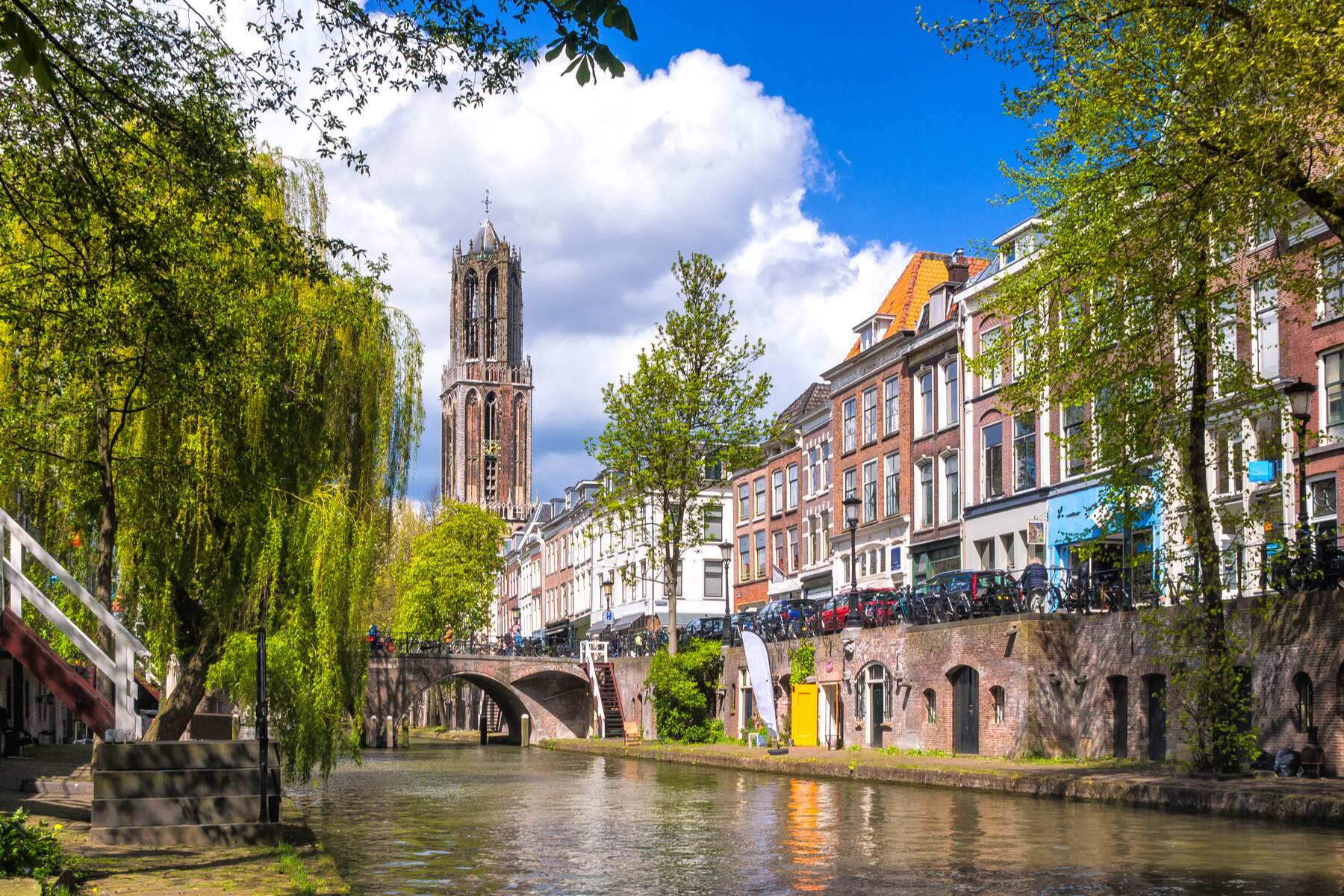
Utrecht was ranked the second most popular place to live in the Netherlands, according to the 2019 Residential Ranking Report by JLL. It’s also the second most expensive place to live in the country, but you can find more affordable housing outside the historic center. Some desirable neighborhoods include Oost, Hoograven, Lombok, and Wittevrouwen. Outside the city, Leidsche Rijn is a newer and more affordable suburb that’s close to nature. The wider Utrecht province also comprises several smaller towns that are very popular among expats, such as Amersfoort.
Haarlem
Haarlem is a small, historical city in the northwest of the Netherlands, conveniently located close to Amsterdam. It’s considered one of the most attractive cities in the Netherlands, with its idyllic cobbled streets, medieval buildings, and winding waterways.
A city steeped in rich history, there are plenty of impressive landmarks and noteworthy museums to visit in Haarlem. These include the Frans Hals Museum and Teylers Museum, the country’s oldest museum.
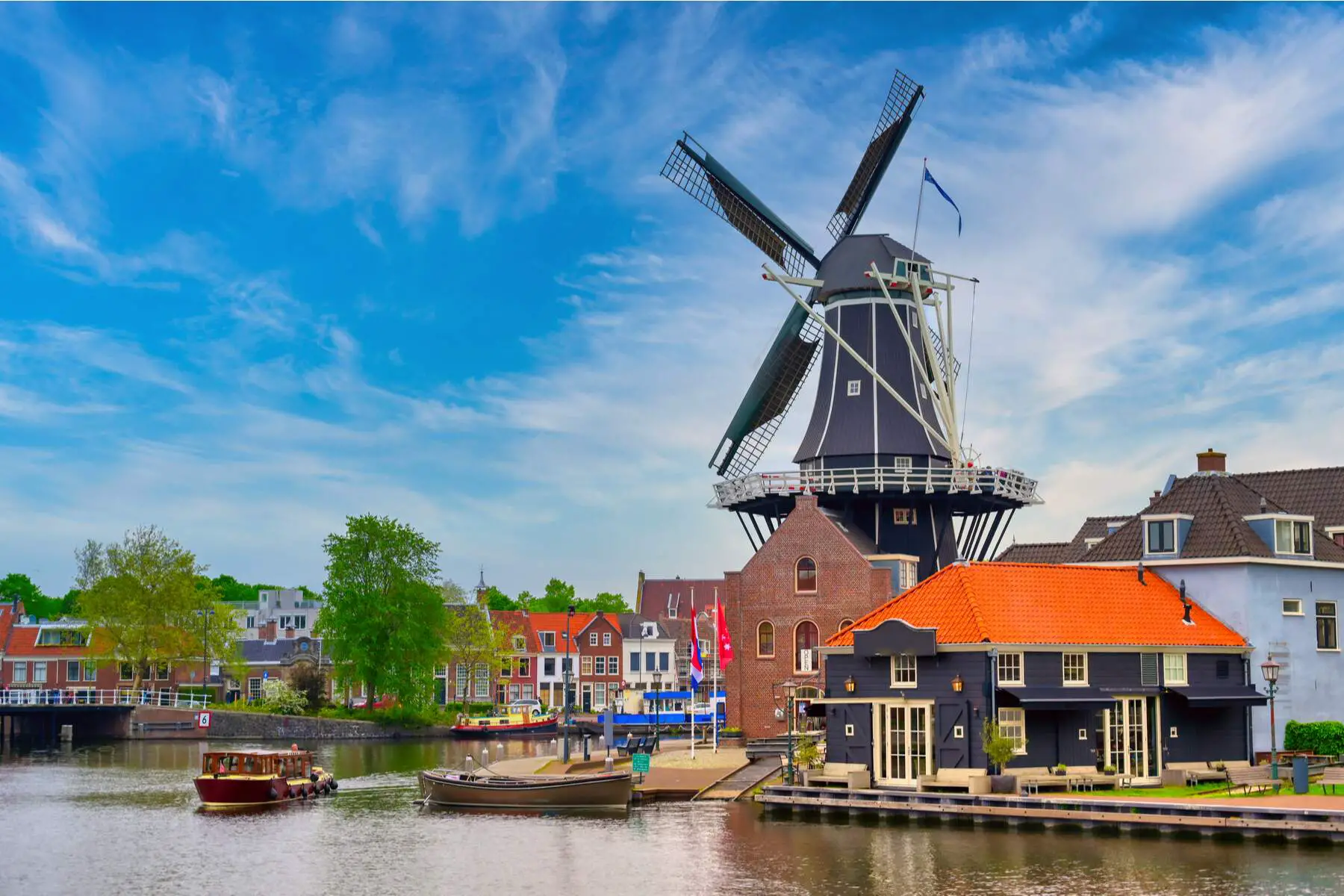
Haarlem has an advantageous location close to the capital and the seaside, making it an increasingly popular destination for expats. With this popularity comes inevitably high housing prices. However, considering Haarlem’s compact size, it’s worth looking into residential neighborhoods outside the center. Some expat-friendly neighborhoods include Oude Amsterdamsebuurt, Kleine Hout, and Leidsevaartbuurt, as well as the more upmarket Koninginnebuurt and Kleverparkbuurt. If you prefer to live closer to the coast, you may enjoy living in Haarlem’s suburbs, such as Bloemendaal, Heemstede, and Overveen.
Leiden
Leiden is a picturesque university city located in the middle of the Randstad region. It’s known as the knowledge epicenter of the Netherlands and is home to the oldest university in the country.
Leiden is a small and compact city that’s bustling with energy, thanks to its large student and international community. A city rich in cultural heritage, Leiden has at least 13 museums, including the Museum de Lakenhal and the Naturalis Biodiversity Center. The city also has great public transport connections to Amsterdam, The Hague, and Rotterdam.
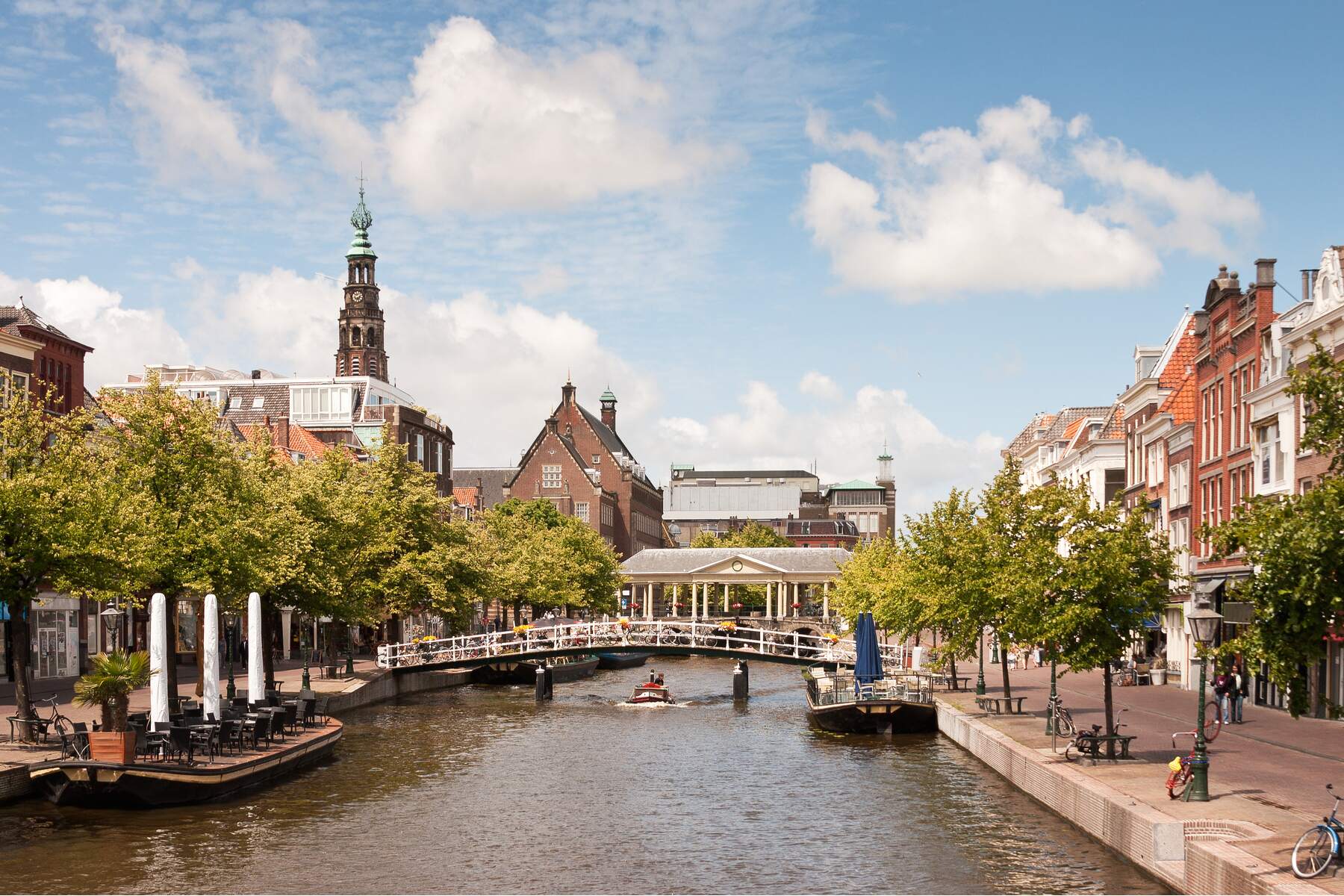
With an influx of students each year, affordable housing in the city center is scarce. Popular neighborhoods close to the center include Professorenwijk, Tuinstadwijk and Lage Mors. Further from the center, Merenwijk and Stevenshof are newer neighborhoods that are well-suited to families.
Outside the Randstad
Groningen
Groningen is the largest city in the north of the Netherlands, named the Martinistad after its 13th-century landmark tower, the Martinitoren. The northern provinces of the Netherlands are known to be quieter, but there’s still plenty to do in Groningen. For such a small city, Groningen has a lively city center and a vibrant arts and culture scene, largely thanks to its huge student population.

Groningen consistently ranks as one of the happiest cities in Europe, according to European Commission reports. Their research considers factors such as quality of life, education, and healthcare.
While Groningen is further from Schiphol Airport and other major cities, housing prices are significantly lower than in the Randstad. In fact, rent in Groningen is around 53% lower than in Amsterdam. Popular neighborhoods among students and expats include Schilderswijk and Zeeheldenbuurt, close to the Noorderplantsoen park. Rivierenbuurt and the alternative Oosterport district are other desirable areas.
Maastricht
Maastricht is a historical city in the south of the Netherlands and the capital of Limburg. Located on the banks of the Meuse River (Maas), Maastricht boasts beautiful riverside views, medieval architecture, and cobblestone streets. It also has a unique cosmopolitan atmosphere, thanks to its proximity to Belgium and Germany.
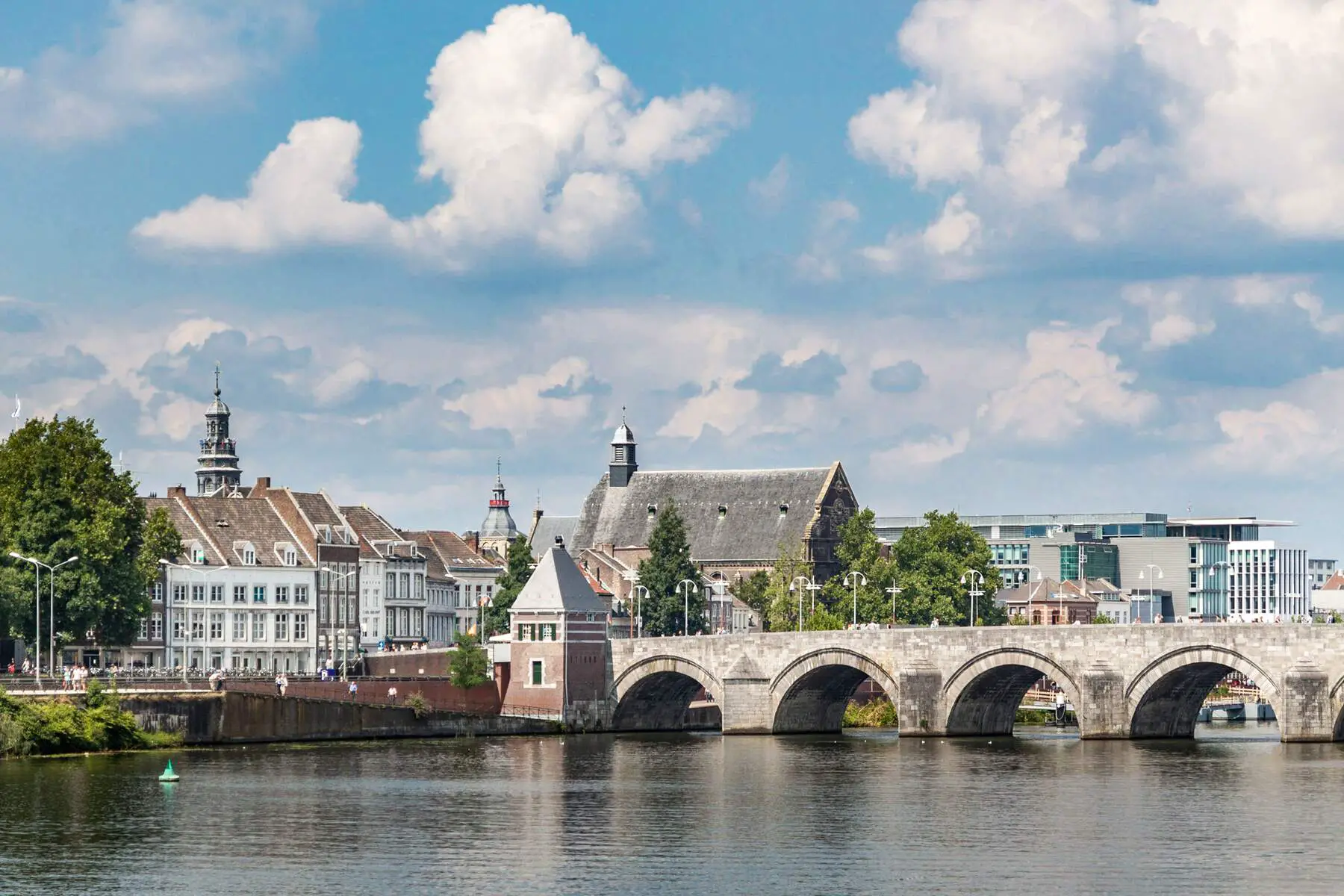
Maastricht has the second highest number of national heritage sights (rijksmonumenten) in the Netherlands after Amsterdam. This includes the Sint Servaasbrug bridge, the oldest bridge in the Netherlands, and Sint-Servaasbasiliek, one of the country’s oldest churches. It’s also known as the carnival city of the Netherlands, hosting one of Europe’s largest and most spectacular carnivals every year.
Many expats live in Wyck and Céramique, which are very close to the center, on the eastern bank of the Meuse River. Other sought-after areas are Boschstraatkwartier, Bosscherveld, and Lanakerveld, located northwest of the city. Sint Pieter is a popular green residential area in the south, close to some of the city’s most unique sights. These include the Zonneberg Caves (Grotten Zonneberg), castle ruins in Hoeve Lichtenberg, and Mount Saint Peter (Sint Pietersberg).
Eindhoven
Eindhoven is a city in the North Brabant province in the south of the Netherlands. It’s the birthplace of the electronics conglomerate Philips, and many other high-tech companies. Eindhoven has since become known as a technology and design hub and has even been branded the Silicon Valley of the Netherlands.

Eindhoven is also one of the greenest cities in the country. According to the University of Groningen, green space makes up nearly 28% of the inner city area. Another bonus of living in Eindhoven is that you are closer to Eindhoven Airport, the second busiest airport in the Netherlands.
In the center of Eindhoven, you’ll find a lot of apartment housing, which is often expensive. The center may be more suitable for single expats or couples without children. Many expat families live on the outskirts of the city, where housing tends to be more spacious. Some in-demand districts include Wonesel-West, a hip residential area north of the city center, and Karpen, a popular multicultural neighborhood.
Nijmegen
Nijmegen is the largest city in the Gelderland province, located close to the German border. It’s the oldest city in the Netherlands, dating back to Roman times. As such, the city is full of magnificent ancient buildings, such as the Stevenskerk in the Grote Markt square. Nijmegen also has much more to offer than just its historic sights. The city center has a lively atmosphere, with many cafés, restaurants, and shops to enjoy. You can even go shopping on the country’s oldest shopping street, Lange Hezelstraat.
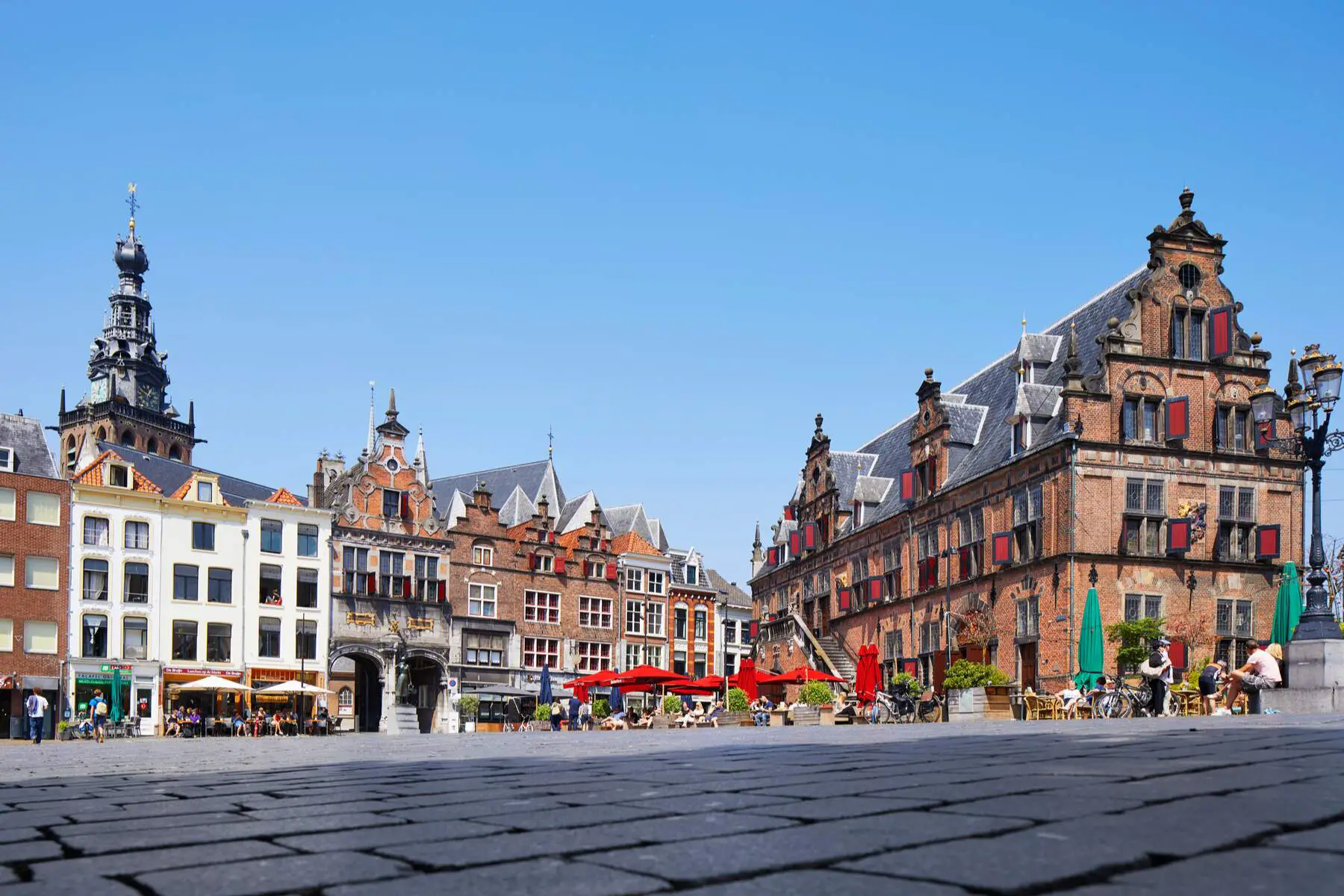
The city hosts the annual Four Days Marches (De Vierdaagse), the world’s largest multiple-day walking event. If you enjoy walking, it’s a memorable way to discover Nijmegen’s beautiful surroundings.
The cost of living in Nijmegen, particularly rent, is considerably lower than in other major cities. Nijmegen comprises several districts around the city center located south of the Waal river and Nijmegen-Noord, north of the river. Many expats also live in Dukenberg and Lindenholt, which offer plenty of access to green spaces.
Where to live in the Netherlands
Which places in the Netherlands are most family-friendly?
The Netherlands is a very family-friendly and safe country, offering a high level of healthcare, education, and cultural facilities. It has one of the top education systems in the world, with its higher education system ranking 10th out of 50 countries according to the 2020 U21 Ranking of National Higher Education Systems. The Netherlands was also named the best country in the world to raise a child by the 2020 UNICEF Innocenti Report Card.

Amsterdam and The Hague have the most international schools in the country. The Hague has dedicated American, British, German, French, and Indonesian schools. Other popular, and more affordable, family-friendly areas include Haarlem, Leidsche Rijn, and Amstelveen, a suburb near Amsterdam.
Where are the best cities to retire in the Netherlands?
Many cities in the Netherlands make ideal places for expats to retire. In fact, the Netherlands ranked fifth out of 44 countries on the 2021 Global Retirement Index. The best place to retire will depend on the type of lifestyle you’re looking for. Amsterdam, Utrecht, The Hague, Eindhoven, and Rotterdam were rated the top five cities to retire in the Netherlands, according to Best Retirement Cities. As some of the country’s biggest cities, these areas have large English-speaking communities with diverse entertainment and cultural activities.
Haarlem is a good option for those who prefer to retire in a smaller city. As well as being slightly more affordable, it has good access to nature, such as the Zuid-Kennemerland National Park. It’s also very close to popular seaside resorts Bloemendaal aan Zee and Zandvoort.
Where to live in the Netherlands if you are single
Single people will likely enjoy living in a city with a lively atmosphere and plenty of opportunities to socialize and meet new people. As the two biggest cities in the Netherlands, Amsterdam and Rotterdam are best known for being social cities with good nightlife. These cities also play host to a diverse range of music and art festivals. This includes Amsterdam Dance Event (ADE) and the North Sea Jazz Festival, among many others. The Hague and Utrecht also have a wide variety of social events and an active expat community.

Most cities in the Netherlands have plenty of two or three-bedroom apartments, ideal for single people to share with flatmates, as well as smaller studio apartments for those who prefer to live alone.
Which cities are the most affordable on a budget?
Amstelveen, Hilversum, and Zaandam are good options for people who want to save on living expenses while remaining close to Amsterdam. Those looking for more affordable housing closer to The Hague or Rotterdam can look into living in smaller cities like Delft or Gouda.
Living outside the Randstad will give you the most value for money, particularly when it comes to housing. You can generally expect to find much cheaper housing in the provinces of Groningen, Limburg, and Zeeland.
Which cities offer the best job opportunities?
The Netherlands is a global business hub, home to the European headquarters of many leading international companies. Fortunately for expats who don’t speak Dutch, the Netherlands has the world’s most proficient English speakers outside of English-speaking countries. English is a primary language in many international businesses, which are mostly located in Amsterdam, The Hague, Rotterdam, and Utrecht.
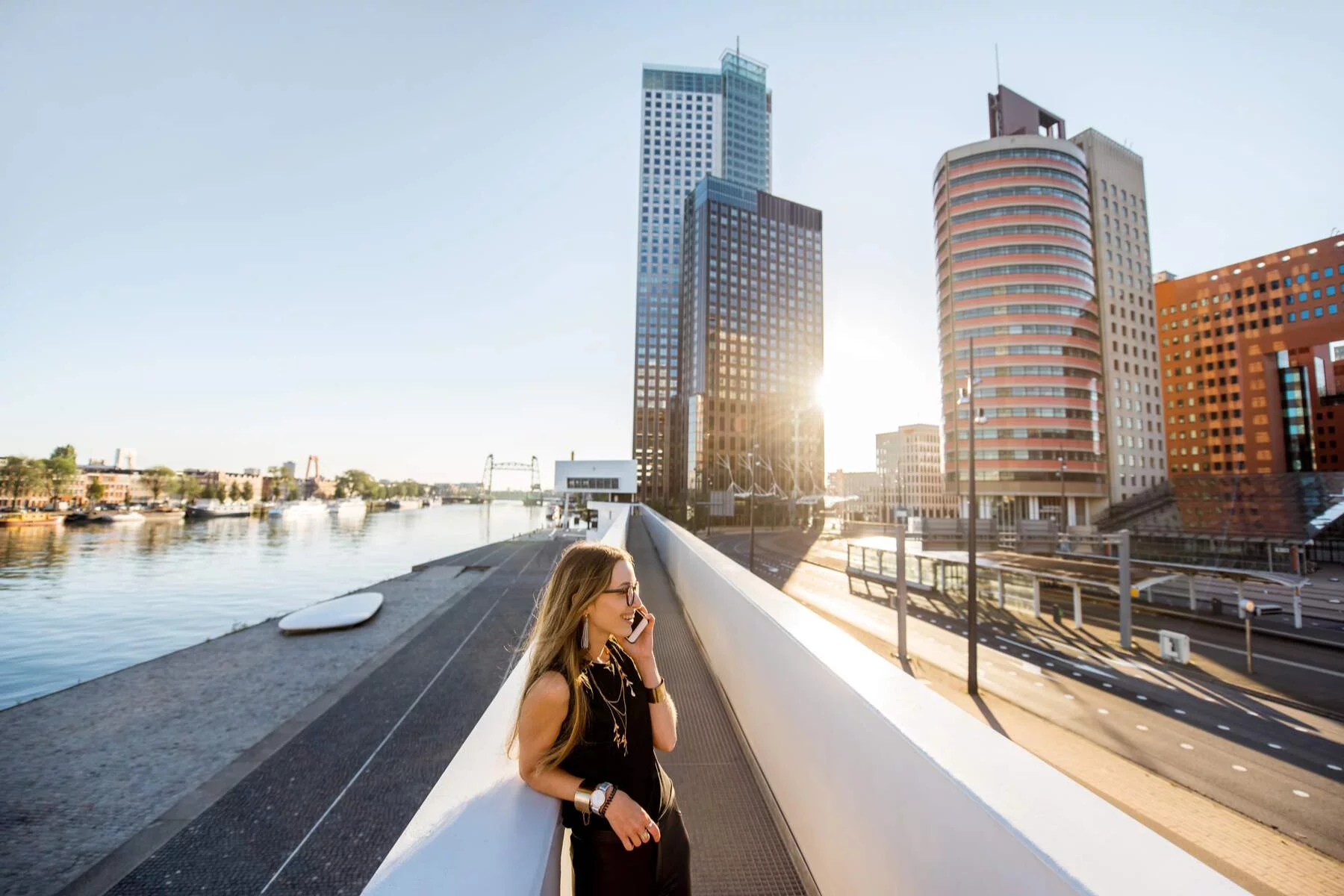
The Hague is the political heart of the Netherlands, home to many embassies and intergovernmental organizations, including the UN’s International Criminal Court. Eindhoven is also an ideal place to look for a job, particularly if you have experience in IT and electronics.
Which cities in the Netherlands are best for business?
The Netherlands has one of the most competitive economies in the world, with the fifth-highest GDP in the European Union, according to 2021 data from Eurostat. The Dutch economy also ranked fourth on the World Economic Forum’s Global Competitiveness Report 2019.
Unsurprisingly, Amsterdam has the highest GDP per capita in the Netherlands, ranking in the top 10% of OECD metropolitan areas. Amsterdam also ranks as the third-best startup city in Europe according to the 2021 Global Startup Ecosystem Ranking by Startup Genome.
Rotterdam and Eindhoven are also good locations for business, having experienced the fastest economic growth among all Dutch cities over the last decade. Similarly, the northern Netherlands has recently seen massive growth and development. For entrepreneurs in the region, there’s also a subsidy scheme for people looking to start a Dutch business.
Property websites
If you’re looking for a place in the Netherlands to rent or buy, you can find plenty of options on property portals, such as:
- HousingAnywhere – online rental platform
- Huurwoningen – online rental platform
- Spotahome – flexible rents for long-term stays
Places to avoid in the Netherlands
The Netherlands is generally a very safe country. According to data from Statistics Netherlands (Centraal Bureau voor de Statistiek – CBS), crime rates are going down in all parts of the country. This includes traditional crime such as pick-pocketing, domestic burglary, and shoplifting. Fortunately, violent crime is uncommon in the Netherlands.
Like all major cities, Amsterdam, Rotterdam, and The Hague have higher crime rates than other parts of the country. However, they still rank as very safe cities overall. For instance, Amsterdam ranks sixth out of 60 cities on the Safe Cities Index 2021 by The Economist Intelligence Unit.
While there are no cities that should be avoided altogether, certain areas in bigger cities tend to have more crime. These are usually in lower-income areas, such as parts of Rotterdam-Zuid and Rotterdam-West, as well as parts of Nieuw-West and Zuidoost in Amsterdam. Although the Netherlands is also home to organized crime, such as human trafficking and drugs exports, it is not generally considered a threat to public safety. The Amsterdam city council has created an interactive map that measures the crime rate of different neighborhoods in the city.
Useful resources
- Government.nl – Official website of the Government of the Netherlands
- Amsterdam.nl – Municipality of Amsterdam
- Rotterdam.nl – Municipality of Rotterdam
- Denhaag.nl – Municipality of The Hague
- Utrecht.nl – Municipality of Utrecht



